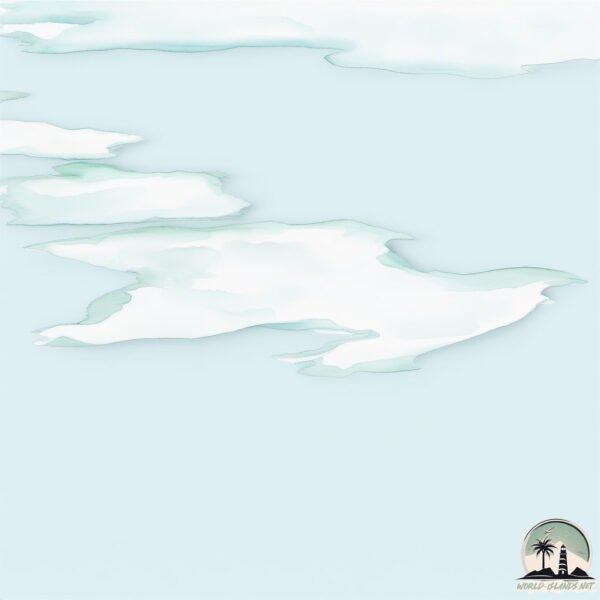Edgeoya

Welcome to Edgeoya, a Polar island in the Barentsz Sea, part of the majestic Arctic Ocean. This guide offers a comprehensive overview of what makes Edgeoya unique – from its geography and climate to its population, infrastructure, and beyond. Dive into the details:
- Geography and Size: Explore the island’s size and location.
- Climate and Weather: Weather patterns and temperature.
- Topography and Nature: Uncover the natural wonders of the island.
- Infrastructure and Travelling: Insights on reaching, staying, and making the most of your visit.
- News and Headlines: Latest News.
Geography and size of Edgeoya
Size: 4989 km²
Coastline: 572 km
Ocean: Arctic Ocean
Sea: Barentsz Sea
Continent: Europe
Edgeoya is a Very Large Island spanning 4989 km² with a coastline of 572 km.
Archipel: Svalbard – A Norwegian archipelago in the Arctic Ocean, known for its rugged remote terrain, polar bears, and as a center for Arctic research.
Tectonic Plate: Eurasia – One of the world’s largest tectonic plates, the Eurasian Plate covers a significant portion of Europe and Asia. It’s characterized by diverse geological features, including the Ural Mountains, the European Plain, and the Himalayas formed from its collision with the Indian Plate.
The geographic heart of the island is pinpointed at these coordinates:
Latitude: 77.80908289 / Longitude: 22.50086784
Climate and weather of Edgeoya
Climate Zone: Polar
Climate Details: Tundra
Temperature: Cold
Climate Characteristics: The tundra climate features long, extremely cold winters and short, cool summers. Vegetation is limited to mosses, lichens, and small shrubs due to the low temperatures and short growing seasons. Biodiversity is low, but some specialized species thrive.
Topography and nature of Edgeoya
Timezone: UTC+01:00
Timezone places: Europe/Paris
Max. Elevation: 598 m
Mean Elevation: 236 m
Vegetation: Sparse Vegetation
Tree Coverage: 10%
The mean elevation is 236 m. The highest elevation on the island reaches approximately 598 meters above sea level. The island is characterized by Plateau: Elevated flatlands rising sharply above the surrounding area, with a maximum elevation over 500 meters but a mean elevation less than 300 meters, forming unique highland areas on islands.
Dominating Vegetation: Sparse Vegetation
These regions have limited plant growth, typically due to extreme conditions like aridity or poor soils. Vegetation is scattered and consists of hardy plant species. Edgeoya has a tree cover of 10 %.
Vegetation: 8 vegetation zones – Very Highly Diverse Island
Islands in this range are ecological powerhouses, showcasing a wide array of vegetation zones. Each zone, from lush rainforests to arid scrublands, coastal mangroves to mountainous regions, contributes to a complex and interdependent ecosystem. These islands are often hotspots of biodiversity, supporting numerous species and intricate ecological processes.
Infrastructure and Travelling to Edgeoya
Does the island have a public airport? no.
There is no public and scheduled airport on Edgeoya. The nearest airport is Svalbard Airport, Longyear, located 594 km away.
Does the island have a major port? no.
There are no major ports on Edgeoya. The closest major port is LONGYEARBYEN, approximately 568 km away.
The mean population of Edgeoya is 0 per km². Edgeoya is Uninhabited. The island belongs to Norway.
The name of the island resonates across different cultures and languages. Here is how it is known around the world: Arabic: جزيرة إدغيويا; German: Edgeøya; Spanish: Edgeøya; French: Edgeøya; Portuguese: Ilha Edge; Russian: Эдж; Chinese: 埃季島
Continuing your journey, Barentsoya is the next notable island, situated merely km away.
Kapp Lee, Edgeøya Svalbard 2022



Norway is classified as Developed region: nonG7: Developed economies outside of the Group of Seven, characterized by high income and advanced economic structures. The level of income is High income: OECD.
News – Latest Updates and Headlines from Edgeoya
Stay informed with the most recent news and important headlines from Edgeoya. Here’s a roundup of the latest developments.
Social Media Posts about Edgeoya
Please note: The data used here has been primarily extracted from satellite readings. Deviations from exact values may occur, particularly regarding the height of elevations and population density. Land area and coastline measurements refer to average values at mean high tide.
